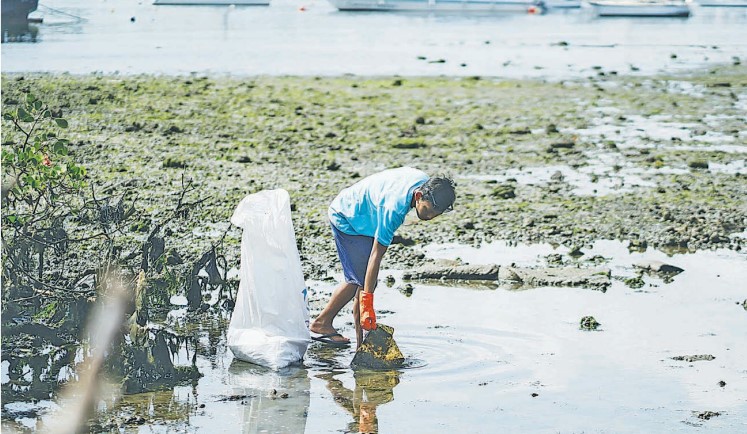Tanzania’s call to action towards zero waste future

AS dawn broke over our beloved United Republic of Tanzania on 20 September, I invited every citizen (young and old, urban and rural, local and foreign) to rise at 6:00 a.m sharp and join the nationwide and global cleanup day.
This was an event that marked the beginning of a movement to reclaim the beauty and balance of the environment entrusted to us by our Creator and to set a lasting example for generations to come.
Long before modern waste-management systems, our ancestors lived in harmony with the land. Tanzanian elders recall when villages were swept clean each morning, when families burned or buried refuse and when rivers sparkled with life.
But rapid urbanisation, population growth and poor waste-disposal habits have left many of our streets littered and waterways polluted. What was once instinctive must now become a deliberate national commitment. Today, environmental degradation is no longer an abstract worry; it is a daily threat.
According to the National Environment Statistics Report (NBS, 2024), Tanzania produces over 6,000 tonnes of solid waste every day, nearly 40 per cent of which remains uncollected. Plastic pollution alone costs coastal communities billions of shillings in lost fisheries and tourism revenue.
Unmanaged waste blocks drainage, worsens flooding and fosters diseases such as cholera, which resurged in several regions last year. Meanwhile, climate change has raised Tanzania’s average temperature by 1.2°C over the past five decades, intensifying droughts and irregular rainfall patterns.
These crises demand urgent, collective action. The September 20 cleanup is symbolic; it is a critical first step toward restoring ecological balance and public health.
Since 2018, youth engagements with thousands of volunteers, communities, schools and organisations have expanded cleanups, data collection and environmental awareness through Waste Assessment & Brand Audits (WABA). World Cleanup Day (WCD) goes beyond simple litter removals, to identifying the sources and pathways of waste mismanagement, empowering communities and demanding systemic solutions.
In South Africa in 2024, the Sustainable Seas Trust and Plastics|SA mobilised 4,852 volunteers across 82 cleanup sites, removing 111.85 tonnes Tanzania’s call to action towards zero waste future of waste.
Likewise in Tanzania, we—together with partners and well-wishers—engaged 11,919 volunteers in 23 cleanup sites, removing 83,469.23 kilogrammes of waste and covering 70.35 km², supported by over 400 organisations.
Waste and brand audits conducted with the Break Free From Plastic Brand Audit Toolkit revealed a striking truth: Of 350,000 units of waste analysed, representing 1,008,334 kilogrammes collected, 75 per cent of the waste found in public areas is locally produced.
This means we can solve three-quarters of the problem with strong national regulations and community behaviour changes in consumption and waste management. Indeed, Tanzania has managed to conduct mass sensitisation campaigns that have touched many young people from far and wide in the last National Clean-up Initiatives.
This year. We intend to reach many more communities so as to hit the global target of “Strive for Five,” a thematic approach of reaching at least five (5) percent of Tanzanians Nationwide. We hope and pray that this call reaches all corners of the country: From the bustling cities of Dar es Salaam, Mbeya, Mwanza and Dodoma, to the shores of Lake Tanganyika and from the spice fields of Zanzibar to the pastoral plains of Arusha.
Citizens and Visitors: Whether you are a student, farmer, business owner or visiting expatriate, your participation matters. Elders and Local Leaders: Your wisdom and authority can rally communities and keep traditions alive. Religious Leaders: Churches, mosques and temples have long been the moral compass of our nation. Your sermons and prayers can elevate environmental care to a spiritual duty.
Youth Movements and Schools: With creativity and energy, young people can transform cleanups into art, music and innovation. Let us echo Ecclesiastes 9:10: “Whatever your hand finds to do, do it with all your might.” On September 20, our hands will find brooms, rakes and bins and we will wield them with purpose.
Our vision does not end with a single event. We propose voluntary cleanup activities every Saturday in all districts, led by local councils, faith groups and community organisations. In addition, we urge the government to declare a National Cleanup Day every last Saturday of the month, making it a civic duty as natural as voting.
Rwanda’s Uganda and Kenya’s National Clean-Up Days prove that consistent practices reduce litter, improve public health, and cultivate civic pride. If we all join in, we can make World Cleanup Day 2025 an act of national unity.
A declaration that Tanzania will not wait for others to save our planet. As Genesis 2:15 reminds us, God placed humanity in the garden “to work it and take care of it.” Let’s take care of our environment to keep nature rolling. Next time, step outside with a broom in one hand and hope in the other.
From that day forward, let us cleanse our streets, beaches, rivers and hearts together. Let’s commit to repeating this act of stewardship, with special vigour on the last Saturday of each month.
Tanzania’s destiny is in our hands. A clean, green and prosperous nation is our dream; let’s keep awake, the task has begun. The writer is TANZANIA Environmental Experts Association Chairman





